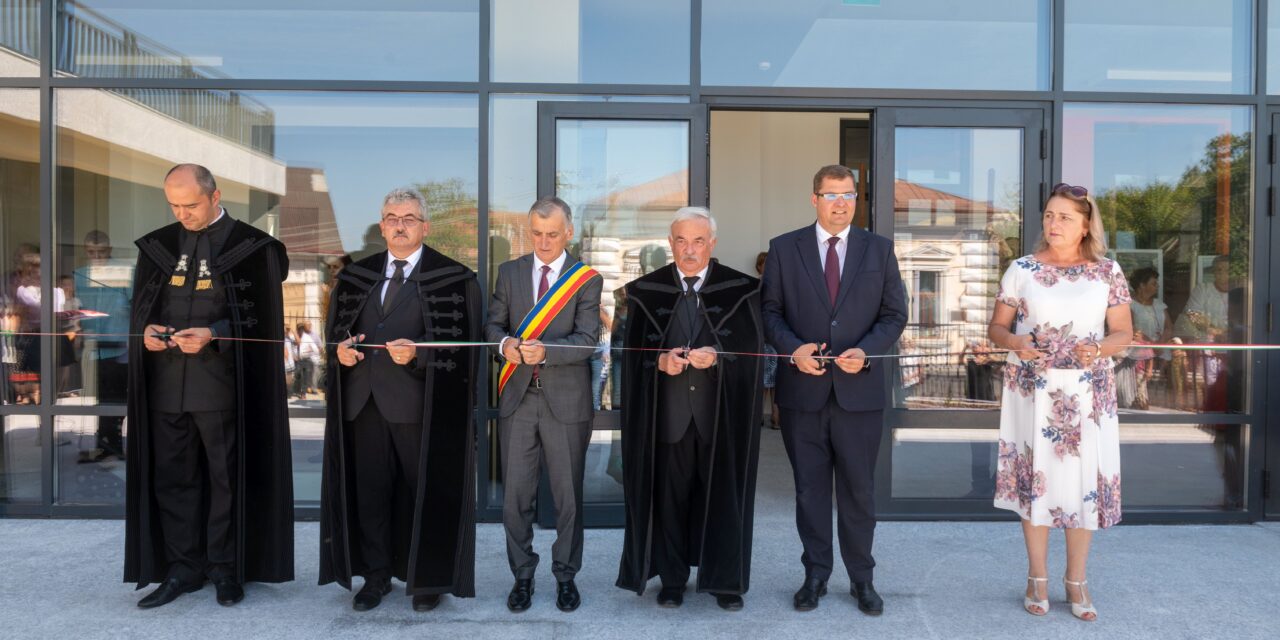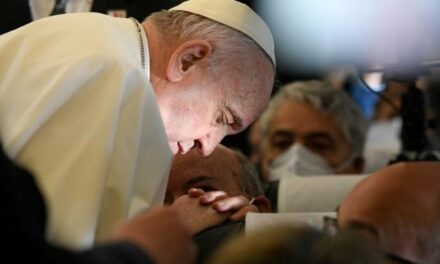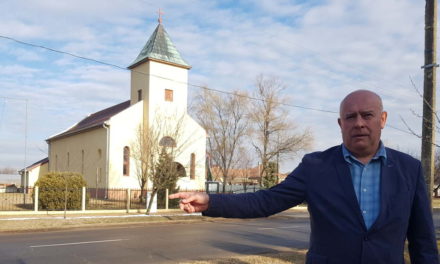Without the harmony of the parts of the nation, there is no common future, and the core of this is the retention and daily use of the Hungarian language, as it is the source of our faith, culture, unique thinking and worldview.
The Hungarian government fulfills its constitutional obligation when it supports the Transylvanian Hungarians, who are not a risk but an asset to Romania, State Secretary János Nagy said on Sunday in Dés, where the reformed church and elementary school renovated with Hungarian state support were inaugurated.
In his address at the thanksgiving service, the State Secretary who heads the Prime Minister's Office expressed his conviction that the functioning of the institutions serving the preservation of Hungarianness will also benefit the majority nation.
Referring to the role of language in preserving identity, he emphasized the importance of mother-tongue education, without which a person is lost for the Reformed Church and the Hungarian nation, but at least he becomes uncertain, "the diseases of our time take hold more easily".
Quoting Gyula Illyés, who compared Hungarian culture to a five-stringed whistle, he encouraged the people of Désí: now is the opportunity for the sound of one branch of the whistle to grow stronger.
Without the harmony of the parts of the nation, there is no common future, and the core of this is the retention and daily use of the Hungarian language, from which our faith, our culture, as well as our unique thinking and worldview stem, - said János Nagy.
He recalled that in the 2004 referendum, the left-liberal government had turned Hungarians in the homeland and Hungarians abroad against each other, but true to Viktor Orbán's promise at the time, in 2010, as the first measure after the elections, the Parliament smoothed out the problem, thus - following the adoption of the law on simplified naturalization - the Hungarians abroad became part of the Hungarian nation "not only spiritually, but also by public law".
He pointed out: according to the basic law adopted at Easter 2011, Hungary bears responsibility for the fate of Hungarians living outside its borders, promotes the survival and development of their communities, and supports their efforts to preserve their Hungarianness. In compliance with this constitutional obligation, the Hungarian government increased the cross-border subsidies tenfold after 2010, which is why it increased the contribution to education fivefold this year and therefore supported the Hungarian kindergarten and school in Dési, the state secretary listed.
In Romanian, János Nagy also thanked Mayor Costan Morar for not hindering but helping the creation of the new Hungarian school, and wished the Transylvanian Hungarians as many "Romanian public figures who think in terms of cooperation and mutual respect" as possible.
"We Hungarians and Romanians are doomed to each other. And just as the sea lifts all ships at high tide, this school development also simultaneously lifts the ship of the Hungarian community in Dés and the local Romanian majority," said the State Secretary in charge of the Prime Minister's Office.
At the thanksgiving service, the Transylvanian Reformed bishop Béla Kató explained: extraordinary developments have taken place in the life of the Hungarian community in Dési in the last five years, and the community can express its gratitude for the kindergarten, the restoration of the church and the new elementary school by sticking to its faith and mother tongue, and with children fills classrooms. According to him, the renovation of the church with the support of the EU and the help of the Hungarian government only makes sense if the school remains next to it, because - as the example of the Transylvanian Saxons showed - without children, churches also become ruins.
After the thanksgiving service, Bishop Béla Kató, Mayor Costan Morar, Deputy Mayor Annamária Kovrig, State Secretary János Nagy and Bishop Csaba Bányai jointly cut the new elementary school. The renovation of the old reformed girls' school building was supported by the Hungarian government with HUF 560 million.
In Désen, 60 kilometers north of Cluj, with a population of 31,500, 2,500 people declared themselves Hungarian in last year's census; 2,300 said they were of the Reformed religion.
MTI













